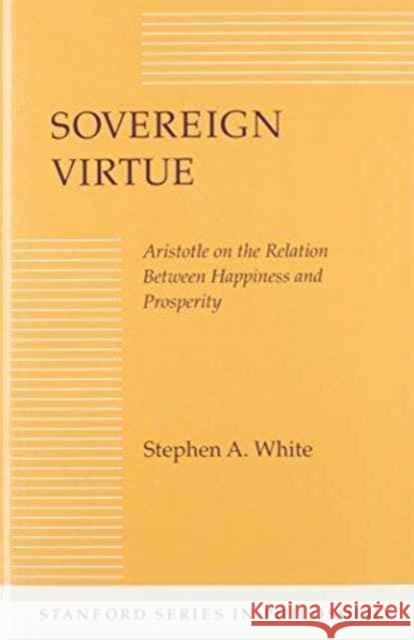Sovereign Virtue: Aristotle on the Relation Between Happiness and Prosperity » książka
Sovereign Virtue: Aristotle on the Relation Between Happiness and Prosperity
ISBN-13: 9780804716949 / Angielski / Twarda / 1992 / 356 str.
The central subject of Aristotle's ethics is happiness or living well. Most people in his day (as in ours), eager to enjoy life, impressed by worldly success, and fearful of serious loss, believed that happiness depends mainly on fortune in achieving prosperity and avoiding adversity. Aristotle, however, argues that virtuous conduct is the governing factor in living well and attaining happiness. While admitting that neither the blessings not the afflictions of fortune are unimportant, he maintains that the virtuous find life more satisfying than other people do and, with only modest good fortune, they lead happy, enjoyable lives. Combining philological precision with philosophical analysis, the author reconstructs Aristotle's defense of these bold claims. By examining how Aristotle develops his position in response to the prevailing hopes and anxieties of his age, the author shows why Aristotle considers happiness important for ethics and why he thinks it necessary to revise popular and traditional views.











